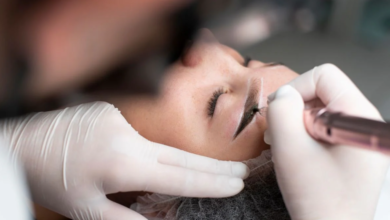Finding Your Perfect Match: How to Choose a ‘Dentist Near Me’

Why Finding the Right Dental Provider Matters
The Importance of a Trusted Oral Health Partner
Finding the right dentist is more than just about fixing a toothache; it’s about finding a partner in your overall health journey. A good dentist is someone you trust to guide you in maintaining not just your teeth, but your well-being. It’s about having someone who understands your needs and can provide consistent, quality care. Think of it as building a relationship with a doctor you can rely on for years to come.
Building a Long-Term Relationship with Your Dentist
It’s not just about finding someone to clean your teeth twice a year. It’s about establishing a relationship where you feel comfortable discussing your concerns and receiving personalized advice. This kind of relationship takes time to build, but it’s worth it. You want a dentist who knows your history, understands your anxieties, and can tailor their approach to your specific needs. It’s like having a mechanic who knows your car inside and out – they can anticipate problems and provide the best solutions.
Beyond Basic Care: Comprehensive Oral Wellness
Your mouth is connected to the rest of your body, and your dentist should understand that. It’s not just about fillings and cleanings; it’s about recognizing how oral health impacts your overall health. A good dentist will look for signs of other health issues during your checkups and offer advice on how to improve your overall wellness. They should be able to discuss things like the connection between gum disease and heart health, or how your diet affects your teeth. It’s about seeing your dentist as a partner in your total health, not just a tooth fixer.
Finding a dentist who prioritizes your long-term oral health is an investment in your overall well-being. It’s about more than just fixing problems; it’s about preventing them and maintaining a healthy smile for years to come.
Starting Your Search for a “Dentist Near Me”
Okay, so you’re on the hunt for a new dentist. It’s more than just a quick search online; it’s about finding someone who fits your life. Let’s break down how to actually start this process.
Assessing Your Personal Needs and Preferences
First things first, what do you need? Think about your specific dental requirements. Do you need someone who’s great with kids? Are you looking into something specific, like Dental Implants in Hemet? Maybe you have anxiety about dental visits and need a super gentle approach. Write it all down. It’s like making a shopping list, but for your teeth.
- Do you have any specific dental concerns (e.g., gum disease, cavities)?
- What are your priorities (e.g., cosmetic dentistry, family dentistry)?
- What kind of personality do you prefer in a dentist (e.g., talkative, quiet, humorous)?
It’s easy to get overwhelmed by options, but taking a moment to reflect on your personal needs will help you narrow down the field and find a dentist who is the right fit for you.
Considering Location and Convenient Office Hours
Let’s be real, nobody wants to drive an hour for a check-up. Think about where you spend most of your time – home, work, maybe the gym. Find a dentist that’s close to one of those places. Also, check their office hours. Do they offer evening or weekend appointments? This can be a lifesaver if you have a busy schedule.
Logistics: Public Transport and Parking Options
If you drive, is there easy parking? Is it free, or will you have to pay? If you take the bus or train, is the office near a stop? These little things can make a big difference in how stressed you are before you even get to the dentist’s chair. Trust me, you don’t want to start your appointment already frazzled.
Here’s a quick checklist:
- Check the proximity to public transportation routes.
- Investigate parking availability and costs.
- Consider traffic patterns during appointment times.
Leveraging Recommendations and Online Tools
Seeking Trusted Recommendations from Your Network
Word-of-mouth is still a powerful tool. Start by asking friends, family, neighbors, or coworkers for recommendations. Personal experiences can give you real insights into a dentist’s chair-side manner, the office atmosphere, and the overall quality of care. Don’t just ask if they like their dentist, but why. What makes them a good fit? What are their strengths and weaknesses?
Professional Referrals: Doctors and Pharmacists
Your primary care physician or local pharmacist can be a great resource. They often have connections within the medical community and can suggest dentists they trust. It’s a good idea to ask them if they know of a good “dentist Hemet,” if that’s where you are located. These professionals often have a good understanding of the quality of care provided by different dentists in the area.
Utilizing Online Search Engines and Directories
Online search engines and dental directories can provide a wealth of information. Websites like Healthgrades, Zocdoc, and even Google Maps can help you find dentists in your area, read reviews, and compare ratings.
Here’s a quick guide to using online tools:
- Search Terms: Use specific keywords like “dentist hemet”, “family dentist”, or “cosmetic dentist” to narrow your search.
- Review Sites: Read reviews carefully, looking for patterns and recurring themes. Pay attention to both positive and negative feedback.
- Directory Listings: Check dental directories for dentist profiles, including their education, experience, and specialties.
Remember that online reviews are subjective and may not always reflect the full picture. Use them as a starting point, but don’t rely solely on them to make your decision.
Evaluating Credentials and Experience
Verifying Dental School and State Licensing
When you’re looking for a dentist, it’s super important to check where they went to school and if they’re licensed to practice in your state. This makes sure they have the right training and are allowed to do dental work. You can usually find this info on the dental board’s website for your state. It’s a quick way to make sure you’re in good hands.
Checking Professional Organization Memberships
Being part of professional groups like the American Dental Association (ADA) can be a good sign. It often means the dentist is keeping up with the latest stuff in dentistry and is committed to following certain standards. It’s not a must-have, but it can give you extra confidence.
Here’s a quick look at some common dental organizations:
- American Dental Association (ADA)
- Academy of General Dentistry (AGD)
- American Academy of Periodontology (AAP)
Assessing Experience in Specialized Dental Care
If you need something specific, like Dental Veneers in Hemet, you’ll want a dentist with experience in that area. Don’t be afraid to ask how many of those procedures they’ve done and if they have any extra training or certifications. It’s all about finding someone who knows their stuff when it comes to your particular needs.
It’s a good idea to ask about continuing education. Dentistry changes fast, and you want someone who’s staying up-to-date with new techniques and technologies. It shows they’re serious about providing the best care possible.
Understanding Services and Technology
Comprehensive Range of Dental Services Offered
When you’re looking for a dentist, it’s easy to focus on location and insurance, but don’t forget to check what services they actually provide! A good dental practice should offer a wide array of treatments, from basic cleanings to more specialized procedures. It’s a real pain to have to switch dentists every time you need something beyond a routine check-up. Think about it: do they offer cosmetic dentistry like teeth whitening or veneers? What about restorative work such as implants or dentures? Having a dentist who can handle most of your needs under one roof is a huge convenience.
Embracing Modern Dental Technology
Dentistry has come a long way, and the technology used can really impact your experience and the quality of care. I’m not saying you need a dentist with every new gadget, but it’s worth asking about some key technologies. For example:
- Digital X-rays: These use less radiation and provide instant images.
- Intraoral cameras: These tiny cameras allow the dentist to show you exactly what’s going on in your mouth.
- CAD/CAM dentistry: This technology allows for same-day crowns and other restorations.
It’s not just about fancy gadgets, though. Modern technology often translates to more accurate diagnoses, less invasive treatments, and faster recovery times. A dentist who invests in technology is usually committed to providing the best possible care.
Preventive Care Philosophy and Approach
Preventive care is the name of the game when it comes to dental health. It’s way better to stop problems before they start, right? So, find out what the dentist’s approach is to prevention. Do they just clean your teeth and send you on your way, or do they take the time to educate you about proper oral hygiene? Do they offer things like fluoride treatments or sealants to help protect your teeth? A good dentist will work with you to develop a personalized plan to keep your mouth healthy for the long haul.
Here’s a quick comparison of different preventive approaches:
| Approach | Description |
Considering Office Environment and Patient Care
The Importance of a Welcoming and Comfortable Office
Walking into a dental office shouldn’t feel like walking into a sterile, scary place. The overall vibe of the office really does matter. Think about it: you’re already potentially anxious about the appointment, so a calming and well-designed space can make a huge difference. Is the reception area clean and tidy? Are the staff smiling and friendly? These small things add up. I once went to a dentist where the waiting room was so cramped and depressing, I almost turned around and left! A good office will pay attention to details like comfortable seating, soothing colors, and maybe even some calming music.
Patient-Centered Communication and Education
It’s super important that your dentist actually listens to you. I mean, really listens. They should take the time to understand your concerns, explain procedures clearly, and answer all your questions without making you feel rushed or silly for asking. A good dentist will also educate you about your oral health, showing you how to properly brush and floss, and explaining the importance of regular check-ups. If a dentist just rattles off instructions without any explanation, that’s a red flag. You want someone who sees you as a partner in your oral health, not just a set of teeth to fix.
Emergency Protocols and After-Hours Care
Dental emergencies always seem to happen at the worst possible times, right? Like, on a Saturday night or right before a big event. It’s good to know what kind of emergency care your dentist provides. Do they have after-hours contact information? Do they have a plan in place for dealing with urgent situations? Some dentists work with a referral service or have a colleague who can cover emergencies. Knowing that there’s someone to call in a pinch can give you real peace of mind.
It’s worth asking about the office’s policy on missed appointments, too. Life happens, and sometimes you have to reschedule. Understanding their policy upfront can prevent any surprise fees or misunderstandings down the road.
Financial Considerations and Insurance
Understanding Payment Options and Plans
Let’s be real, dental work can be expensive. It’s important to figure out how you’re going to pay for your visits before you even sit in the chair. Most offices accept credit cards, and some offer payment plans that let you spread the cost out over time. Don’t be afraid to ask about all the options available to you. Some dentists even have in-house membership plans that can save you money if you don’t have insurance.
Navigating Dental Insurance Coverage
Dental insurance can be confusing, but it’s worth understanding your policy. Find out what’s covered, what’s not, and what your co-pays and deductibles are. Make sure the “dentist near me” you’re considering is in your insurance network. If they’re not, you might end up paying a lot more out of pocket. Call your insurance company and the dental office to confirm coverage details. It’s better to be safe than sorry!
Transparent Pricing and Cost Discussions
No one likes surprises when it comes to bills, especially medical ones. A good dentist will be upfront about the cost of procedures before they start working on your teeth. Ask for a written estimate that breaks down all the charges. If something seems unclear, don’t hesitate to ask for clarification.
It’s a good idea to ask about the cost of common procedures like cleanings, fillings, and x-rays. This will give you a better sense of the dentist’s overall pricing and help you compare costs between different offices.
Here’s a simple example of how costs might be presented:
| Procedure | Estimated Cost |
| Routine Cleaning | $100 – $150 |
| Filling (Composite) | $150 – $250 |
| X-Ray (Full Mouth) | $80 – $120 |
Conclusion
So, picking the right dentist is a big deal for your mouth health. It’s not just about finding someone close by. If you follow these tips, you can find a good dentist who fits what you need. Remember, a good dentist isn’t just about fixing teeth. They’re like a teammate for your whole health. Make your teeth a priority, and take your time to pick the right person.




